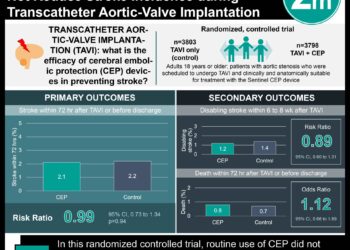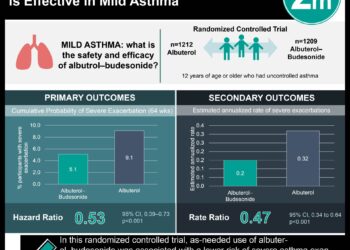H1N1 vaccine likely safe for pregnant mothers
Image: PD
1. Pregnant mothers vaccinated with the MF59 A/H1N1 vaccine showed no differences in spontaneous delivery, post-partum intensive care admission, perinatal death, or low-birth weight.
2. Mothers vaccinated were found to be at slightly higher risk for eclampsia and gestational diabetes.
Evidence Rating Level: 2 (Good)
Study Rundown: In 2009 the A/H1N1 influenza strain reached pandemic status and placed an increased risk on birth outcomes. To reduce these unprecedented risks, many national health services (including Italy) altered vaccination recommendations, advising mothers in the second and third trimester to be vaccinated. This cohort study investigates the role of the MF59 A/H1N1 adjuvant influenza vaccine on birth outcomes between October 2009 and September 2010. During the study, researchers found no significant differences between vaccinated (n=6,131) and unvaccinated (n=23,987) populations when looking at spontaneous deliveries, post-partum intensive care admissions, perinatal deaths, or low-birth weight. The study controlled for potential confounding variables such as socioeconomic status, but was unable to control for smoking history, alcohol use, or BMI. Researchers conclude that this evidence adds to a growing body of literature suggesting the MF59 influenza vaccine is safe for use during pregnancy. It should be noted that meta-analysis of published studies would provide further evidence.
Click to read the study in BMJ
Relevant Reading: H1N1 2009 influenza virus infection during pregnancy in the USA
In-Depth [cohort study]: This cohort study was focused on a population of eligible pregnancies in the Lombardy region of Italy, where the MF59 vaccine was exclusively distributed by the Italian National Health Service. Within the vaccinated cohort of pregnant mothers, 57.9% (n=3,615) were vaccinated in their third trimester, while 40.9% (n=2,557) were vaccinated in their second trimester. Analyzing the primary outcomes in the study, researchers found negligible differences between vaccinated and control populations when looking at spontaneous deliveries (odds ratio 1.02, 0.96 to 1.08), post-partum intensive care admissions (0.95, 0.47 to 1.88), perinatal deaths (1.06, 0.65 to 1.71), or low-birth weight (0.95, 0.86 to 1.04). However, the vaccinated maternal population was found to have a slightly higher risk of eclampsia (odds ratio 1.19, 1.04 to 1.39) and gestational diabetes (1.26, 1.04 to 1.53).
More from this author: Medicaid beneficiaries among most frequent visitors to the emergency department; Emerging coronavirus found to spread in healthcare facilities; CT scans linked to cancer risk in children;Slowdown in healthcare costs linked to economic and clinical factors
©2012-2014 2minutemedicine.com. All rights reserved. No works may be reproduced without expressed written consent from 2minutemedicine.com. Disclaimer: We present factual information directly from peer reviewed medical journals. No post should be construed as medical advice and is not intended as such by the authors, editors, staff or by 2minutemedicine.com. PLEASE SEE A HEALTHCARE PROVIDER IN YOUR AREA IF YOU SEEK MEDICAL ADVICE OF ANY SORT.







